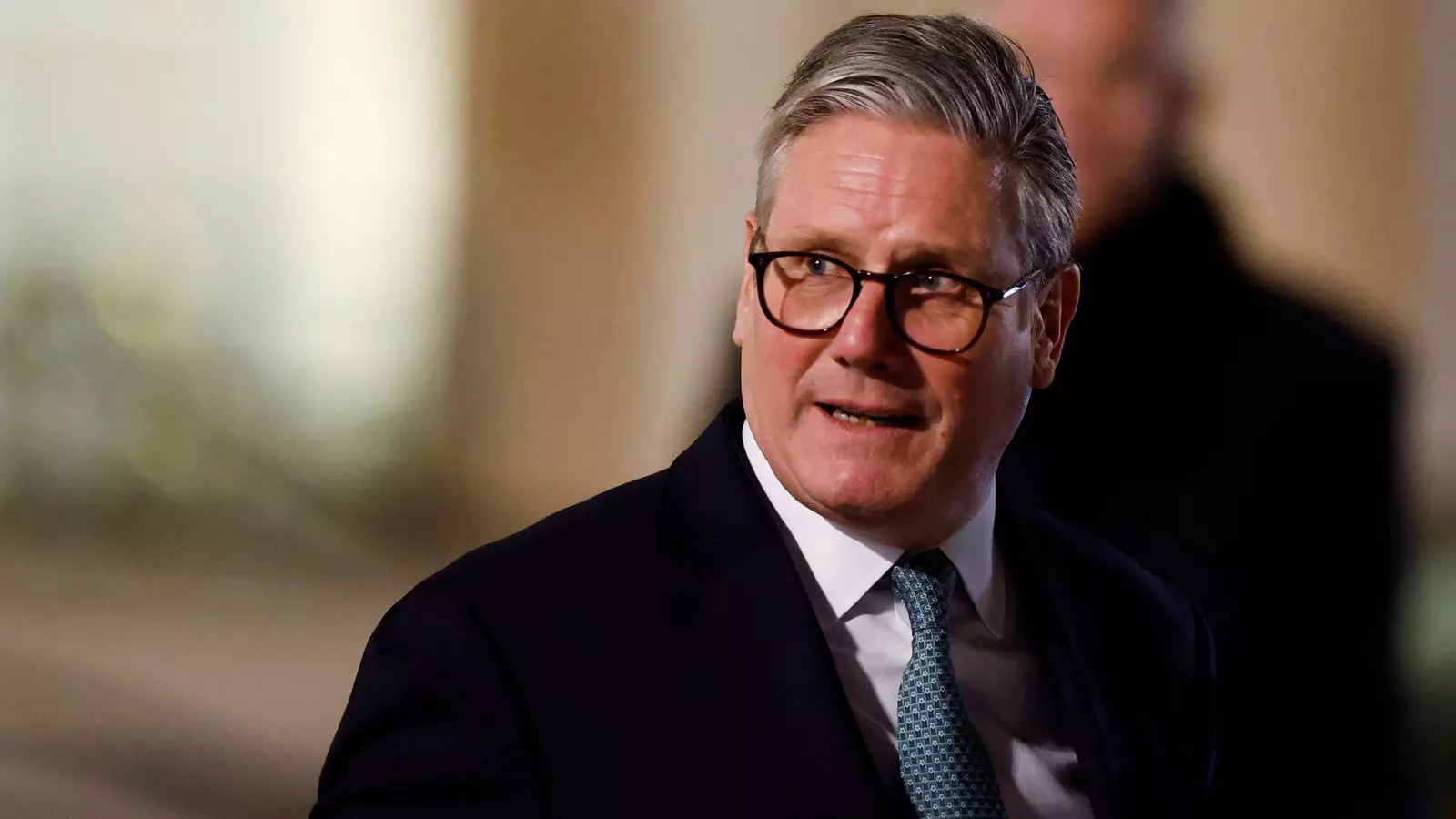As the ongoing conflict in Ukraine enters a perilous phase, the call for robust international support has never been more pressing. Recent statements by British political leader Sir Keir Starmer highlight a critical dimension of this international discourse. Starmer has emphasized the need for a security guarantee from the United States as a framework for peace negotiations, warning that any arrangement failing to address Ukraine’s security would risk exacerbating the situation. His remarks come just before a significant meeting between UK leaders and President Donald Trump, making the stakes even higher as the world watches how power dynamics shift in response to the conflict.
Starmer’s assertions against a hastily arranged peace deal reflect a common concern among global observers of the Russian invasion. His statement that a peace agreement which fails to deter further aggression from Vladimir Putin would be a “disaster for everyone” resonates with the sentiment that peace must not merely be an end to fighting; it must also lay the groundwork for long-term stability. The idea that Ukraine must have agency in discussions regarding its future is paramount, as it directly negates any sense of dictate from external powers. Any peace that does not include Ukraine’s voice risks marginalizing its sovereignty and furthering the ambitions of aggressors.
In the context of peace negotiations, the need for a solidified security arrangement with American involvement is crucial. Starmer’s call for American support in the form of defensive commitments, including air defense systems, is indicative of a larger strategy that seeks to fortify Ukraine against future incursions. These security guarantees are essential not just for Ukraine’s defense, but also for restoring credibility in international treaties and alliances, notably NATO. If Ukraine is left vulnerable, it sends a message to other countries about the effectiveness of global partnerships and security commitments.
The geopolitical ramifications of the conflict in Ukraine extend far beyond European borders. As negotiations unfold in Saudi Arabia involving representatives from the US and Russia, the omission of Ukrainian officials in these talks highlights a dangerous disconnect. This raises questions about the legitimacy of any potential agreements. UK Defence Secretary John Healey’s assertion that real negotiations necessitate Ukrainian participation is a concept that echoes broader principles of self-determination and respect in global diplomacy. In times of crisis, the voices of those directly affected must be prioritized to forge meaningful resolutions.
Acknowledging the Need for Increased Defense Spending
As pressures mount from various sectors—both from within the UK and its international allies—Starmer has suggested an increase in UK defense spending, aiming to bolster NATO’s overall robustness. This shift comes as European partners, including the UK, are reminded of their responsibility to take on a larger share of security costs. The commitment to raise defense spending from 2.3% to 2.5% of GDP serves as an acknowledgment of the changing threat landscape. Security is an imperative that necessitates investment, and the UK must clearly communicate its commitment to its allies, especially in light of calls from leaders across Europe for stronger military support.
Sir Keir Starmer’s articulation of a security guarantee for Ukraine, coupled with a call for robust participation in peace discussions, is indicative of a deeper understanding of the complexities surrounding the conflict. The battle for a just and secure peace is not merely about ending violence; it is about ensuring that peace, once achieved, is sustainable, backed by credible guarantees, and involved direct voices that reflect the aspirations of Ukrainians. As global leaders prepare for crucial forthcoming discussions, it is imperative that they approach the negotiations with these tenets firmly in mind, recognizing that only through genuine collaboration and comprehensive strategies will the specter of war be decisively diminished.



Leave a Reply